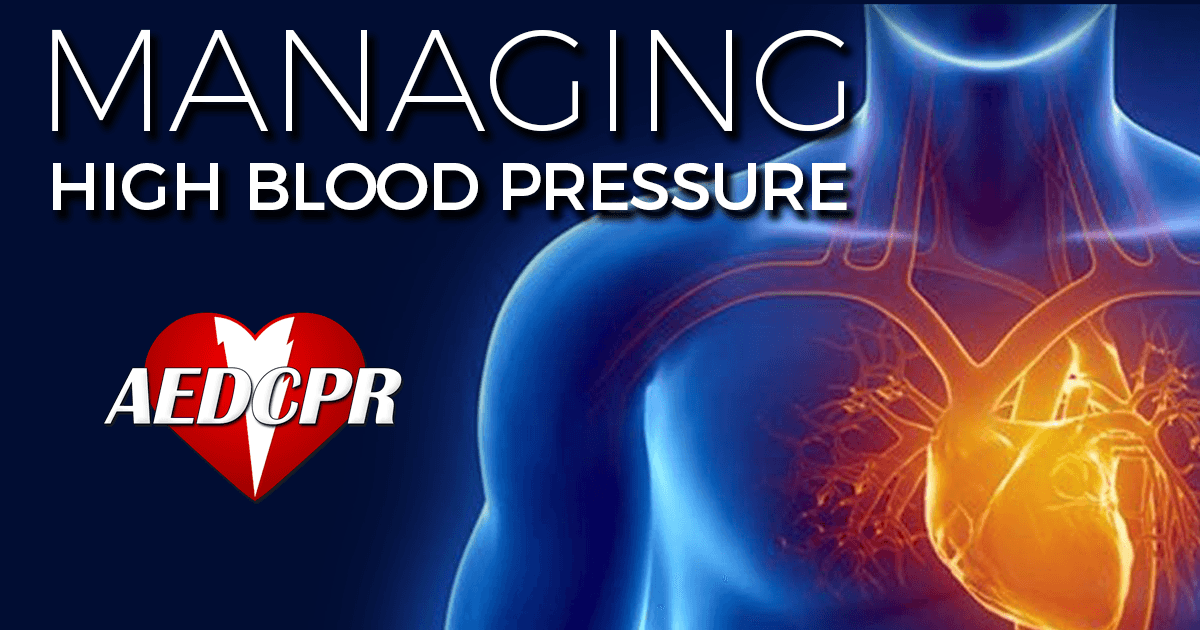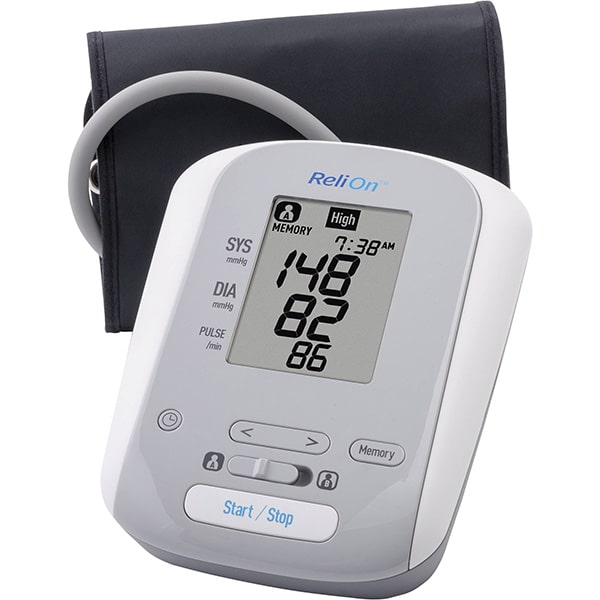
What is High Blood Pressure?
High blood pressure (also known as HBP or hypertension) is a condition in which the sustained force of blood against the artery walls is too high. Over time, the stress on the artery walls can cause damage to your body. Uncontrolled high blood pressure can cause damage to your organs and is a major risk factor for heart disease. Which is why managing high blood pressure is
Most of the time, high blood pressure doesn’t have any symptoms, even when pressure is dangerously high. The symptoms that do appear, such as headaches, or shortness of breath, are often overlooked or attributed to another cause. Fortunately, HBP can be easily diagnosed with a pressure cuff by your doctor.

Your blood pressure appears as two numbers; systolic/diastolic. Systolic blood pressure refers to the force of blood against the arteries when your heart beats, and diastolic refers to the force exerted between beats.
Normal blood pressure is below 120/80 mm Hg.
Hypertension is 140/90 mm Hg, or higher.
Prehypertension is blood pressure that is elevated, but not high enough to be considered hypertension. The range for prehypertension is 120-139 systolic/80-89 diastolic.
High blood pressure is very common. Nearly 1/3rd of Americans has hypertension, or prehypertension.
Who is at risk for High Blood Pressure?
There are a number of major and minor factors that are associated with an increased risk of high blood pressure. The more of these factors that apply, the higher your risk of having high blood pressure.
Some risk factors cant be modified. These include:
Age
As people get older, their risk of high blood pressure increases.
Gender
Men are more likely to have
Heredity
HBP can run in families. If a mother or father has high blood pressure, then their child is more likely to have it as well. Additionally,
Other risk factors are the result of lifestyle choices. These are modifiable. Some examples include:
Obesity
If you are overweight or obese, you are at a greater risk. Overweight people require more blood to supply their cells with oxygen and nutrients. This means your heart has to work harder and put more pressure on your artery walls.
Sedentary Lifestyle
People who don’t stay physically active often have higher resting heart rates. This means their hearts have to work harder to pump blood throughout their bodies, which increases the stress on their artery walls. In addition, being physically inactive contributes to being overweight or obese.
Smoking
Cigarette smoke has short-term and long-term effects on your blood pressure. Shortly after inhaling cigarette smoke, your blood pressure and heart rate will quickly rise. Over a longer period, habitual smoking can lead to a build-up in plaque in your arteries (atherosclerosis) which contributes to hypertension, raising your risk for heart attack and stroke.
Alcohol:
Like with cigarettes, drinking alcohol can raise your blood pressure shortly after consumption. Binge drinking and heavy alcohol usage contribute to long-term hypertension. Additionally, alcoholic drinks contain calories and sugar, which contribute to weight gain and therefore HBP. Finally, alcohol can interfere with medications, including those used to manage high blood pressure.
Diet
Diets high in sodium have been linked to high blood pressure. Excess sodium can lead to fluid retention, which can cause an increase in blood pressure.
Managing High Blood Pressure – What you can do
While you cant eliminate every risk factor, it’s still possible to reduce your risk of hypertension, or to manage your blood pressure if you have already been told you have hypertension.
Weight Loss
For many, weight loss is an important step in their road to managing high blood pressure. Losing as little as ten pounds can have a positive impact on your blood pressure. If you have hypertension and are already overweight, then losing weight is probably the single most important thing to do.
Sedentary Lifestyle
A sedentary lifestyle often goes hand-in-hand with obesity and high blood pressure. Exercise is an important way to tackle both. The Department of Health and Human Services recommends at least 150 minutes of moderate aerobic exercise or 75 minutes of vigorous aerobic exercise per week. Regular exercise can help you manage your weight, as well as promote general heart health.
Smoking
Smoking contributes to many health conditions and diseases, with hypertension being just one of them. Cessation of cigarette smoking can help to improve your blood pressure in the short term. Quitting will also help to reduce the risk of developing plaque in the arteries, which contributes to high blood pressure and other heart disease. While quitting cigarettes can be difficult for some people, there are options; Nicotine replacement therapy (NRT) includes products like gum and adhesives the go on the skin to alleviate withdrawal symptoms. You can also talk to your doctor about prescribing other non-nicotine medications that can help you to quit.
Alcohol
Alcohol consumption is can have a big impact on blood pressure. If you are a heavy drinker, try to reduce your alcohol consumption to a moderate level gradually over the course of a week or two. Cutting alcohol too quickly can result in high blood pressure. Additionally, if you are on medication for high blood pressure, it is important to know how that medication will interact with alcohol. For example, if you are on an alpha-blocker for hypertension, mixing with alcohol can lead to dangerously low blood pressure.
Sodium
Reducing sodium intake is another way to help lower blood pressure. Many packaged and processed foods are high in sodium. In fact, most of the sodium in the average diet comes from packaged foods rather than table salt. The American Heart Association recommends no more than 1,500 mg per day.
To learn more about Heart Health Living or what to do in case of a Cardiac Emergency, visit aedcpr.com.
